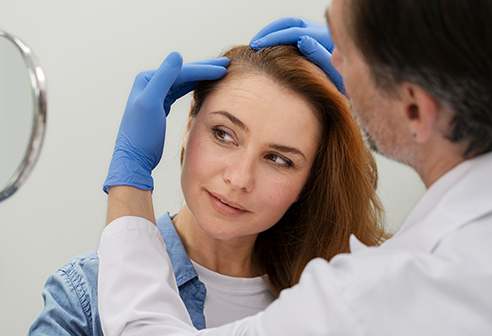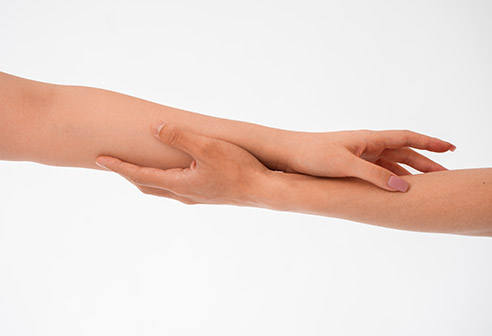
Many people of all ages want to have thick and shiny hair. However, this is not always possible. Due to various factors, individuals may experience problems such as hair loss, thinning, or sparse hair. When hair does not receive the vitamins it needs, problems such as thinning, sparseness, weakening, and a dull and lifeless appearance may occur.
What Are the Causes of Hair Thinning?
- Genetic factors,
- Degradation in skin and tissue,
- Hormonal balance disorders,
- Medication use due to illnesses,
- Frequent hair dyeing,
- Processes like bleaching and perming,
- Constant blow-drying of hair,
- Excessive use of hair straighteners,
- Vitamin deficiencies,
- Air pollution,
- Smoking,
- Insufficient care,
- Stress,
- Aging,
- Exposure to intense heat,
- Showering with very hot water,
How to Thicken Hair Strands?
So, is it possible to treat thinning hair strands? Hair thickening treatment aims to make hair look thicker, fuller, and healthier. Today, it is possible to restore thinning hair strands to their former appearance through certain methods. For hair to thicken, a balanced diet is a fundamental condition. A rich diet containing vitamins E, A, and B supports cell renewal and the thickening of hair strands.
Routine Hair Care Should Be Changed
Additionally, natural masks applied at regular intervals eliminate the weak appearance of hair. It would be beneficial to start by changing the routine hair care style used to restore hair strands to their original thickness. Some of the methods used to solve the problem of hair thinning or sparseness are:
Hair Washing: Air pollution, more common in big cities, affects hair in addition to its negative impacts on human health. Air pollution causes hair to look dull, lackluster, and leads to split ends. Therefore, hair should be washed at least twice a week with a suitable shampoo.
Hair Care Products: Care should be taken in shampoo selection. Light shampoos that nourish hair roots and protect hair strands, and that do not contain a high amount of chemicals, should be preferred. Specially formulated hair shampoos, conditioners, and serums can help strengthen and thicken hair strands. Furthermore, chemical-free organic shampoos prevent hair damage.
Nutrition and Vitamin Supplements: Nutritional supplements containing vitamins and minerals important for hair health ensure the thickening of hair strands. Especially protein, biotin, keratin, zinc, iron, and vitamins A, B, C, E, which instill a positive effect on the body, are also beneficial for hair health. On the other hand, reducing cigarette, tea, and alcohol consumption also supports the thickening of thin hair strands.
Platelet Rich Plasma (PRP) Treatment: PRP treatment, which involves injecting enriched plasma obtained from the person's own blood into the scalp, contributes to nourishing hair follicles and thickening hair strands. Applied once a month and without any side effects, PRP treatment revitalizes, shines, thickens, and strengthens hair.
Hair Transplantation: Hair transplantation can be considered for hair loss occurring in certain areas. In the said procedure, hair follicles taken from the scalp are transplanted to thinned or balding areas. This allows for the growth of thicker hair strands. However, if hair loss continues, undergoing this application may not yield the expected result. Hair transplantation does not completely stop hair loss. In this procedure, it is expected that hair has completely fallen out or become sparse.
Natural Methods: Natural methods that everyone can try at home, such as honey, cinnamon, and garlic, hazelnut and olive oil masks, fenugreek, argan, and castor oil, can be used. These products stimulate blood circulation in the hair roots. They make hair strands more resistant to shedding, help them look fuller from the root, and promote elongation. Additionally, applying a protein-rich egg mask and daily scalp massage can also encourage the thickening of thin hair strands. Hair thickening treatments may not show the same effect for everyone. It should be remembered that every individual's hair structure is different. It is important to consult a professional hair specialist to achieve the best results.



